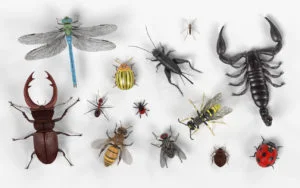Dust mites are tiny creatures that feed on dust inside your home. If dusty areas make you sniffly, this is an allergic reaction to these mites. You can keep them at bay by keeping your home as clean as possible and taking other steps. Find out more about dust mite protection for your home in Broken Arrow.
Maintain the Right Humidity Level
Dust mites thrive when your home is more humid than it should be. Ideally, the humidity level in your bedroom, where dust mites are commonly found, should be kept at 50 percent or lower. Dust mites do best in environments where the humidity level is 70 percent or higher. Using a portable dehumidifier in your bedroom or having a whole-home dehumidifier installed makes it easier for you to control the humidity level and reduce these pests.
Change Your HVAC Filter
Changing your HVAC filter on a regular basis, such as every month or every other month, helps cut down on the amount of dust you have in your home. This helps keep dust mite populations down in your home. Consider switching to an HVAC filter that offers higher efficiency, which helps ensure that it’s able to trap as many dust particles as possible.
Dust and Vacuum Regularly
One of the most effective dust protection methods is to reduce the amount of dust in your home overall. You can do this by dusting and vacuuming your home on a regular basis. You should dust and vacuum a few times a week or more often if you have pets in your home, since their dander can create more dust.
Invest in an Air Purifier
Air purifiers won’t get rid of dust mites, but they do help remove dust from the air inside your home. This helps cut down on the amount of dust you have, which can help reduce the dust mite population you have.
If you need help with maintaining the right humidity level or need dust mite protection advice, please contact Air Assurance. Our HVAC team can provide you with the service you need to discourage dust mites.
Our goal is to help educate our customers in the Tulsa and Broken Arrow, Oklahoma area about energy and home comfort issues (specific to HVAC systems). For more information about other HVAC topics, call us at 918-217-8273.




















